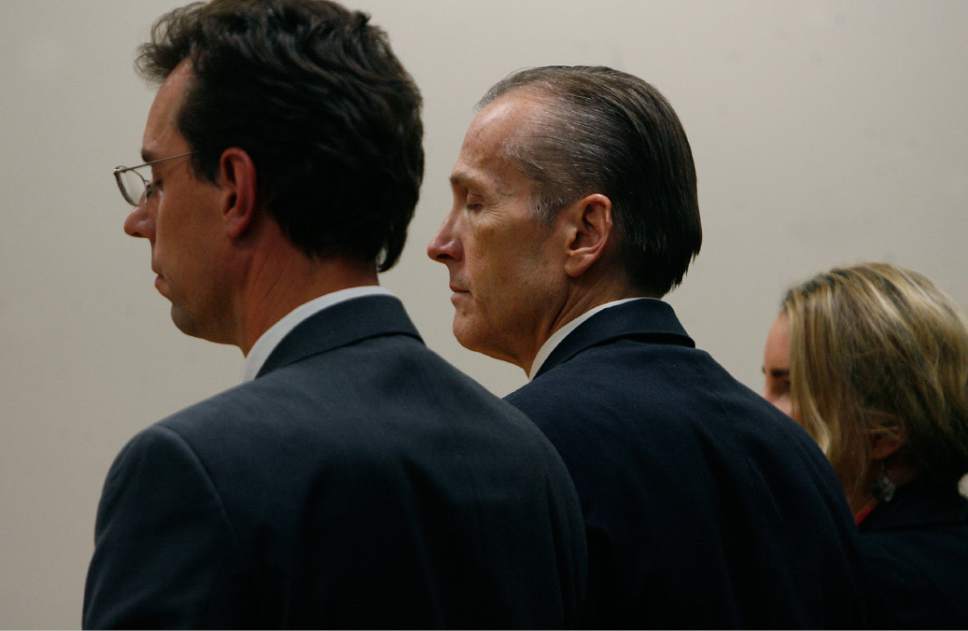This is an archived article that was published on sltrib.com in 2017, and information in the article may be outdated. It is provided only for personal research purposes and may not be reprinted.
A former Utah doctor found guilty of drugging and drowning his wife in a bathtub lost his bid for a new trial this week, when the Utah Court of Appeals ruled there was enough evidence presented at his high-profile trial to convict him.
Martin MacNeill's attorneys argued last September that he should get a new trial because jurors relied on false testimony and thin evidence when they found him guilty in 2013 of first-degree felony murder and second-degree felony obstructing justice.
The now-61-year-old has been imprisoned for more than two years, after he was sentenced by a Utah County judge to spend a 15-years-to-life term in prison for Michele MacNeill's April 11, 2007, death at their Pleasant Grove home.
His appellate attorneys contended that prosecutors tainted the testimony of an important witnesses and engaged in misconduct when they withheld thousands of pages of evidence from MacNeill's trial attorneys.
But the high court found no error that warranted a new trial, and further ruled that there was ample evidence to prove MacNeill committed the crimes.
MacNeill's attorneys had also argued there were problems with the testimony of a federal inmate who served time with MacNeill after he was convicted of an unrelated identity theft case. That inmate told jurors that MacNeill confessed to him that he had murdered his wife.
Attorneys argued that the inmate was not truthful on the stand about a deal he received in exchange for testifying, and that prosecutors did not try to correct the testimony and did not inform MacNeill's attorney that a Utah County Attorney's Office investigator had written a favorable letter to federal prosecutors requesting leniency for the inmate. Those omissions amounted to prosecutor misconduct, they argued.
But an attorney for the state argued in response that even if Utah County prosecutors erred, it was not prejudicial and did not affect the outcome of the trial. The high court agreed.
At MacNeill's 2013 trial, prosecutors weaved a narrative that his bad or odd behavior — including the growing seriousness of his affair with a woman named Gypsy Willis, his insistence that his wife have a face-lift, asking that extra medications be prescribed to her and his reaction to his wife's death — all added up to murder.
MacNeill used an alibi defense at trial, arguing that he was at work when Michele MacNeill died.
The former doctor will have his first bid at parole at a hearing in August 2052, when he is 96 years old.
He is also serving a prison sentence for a 2014 conviction of sexual abuse for inappropriately touching his adult daughter. The Utah Court of Appeals also denied his request for a new trial in that case, rejecting arguments that the high-profile murder trial tainted MacNeill's chances for a fair trial in Utah County on the sex abuse allegations.



